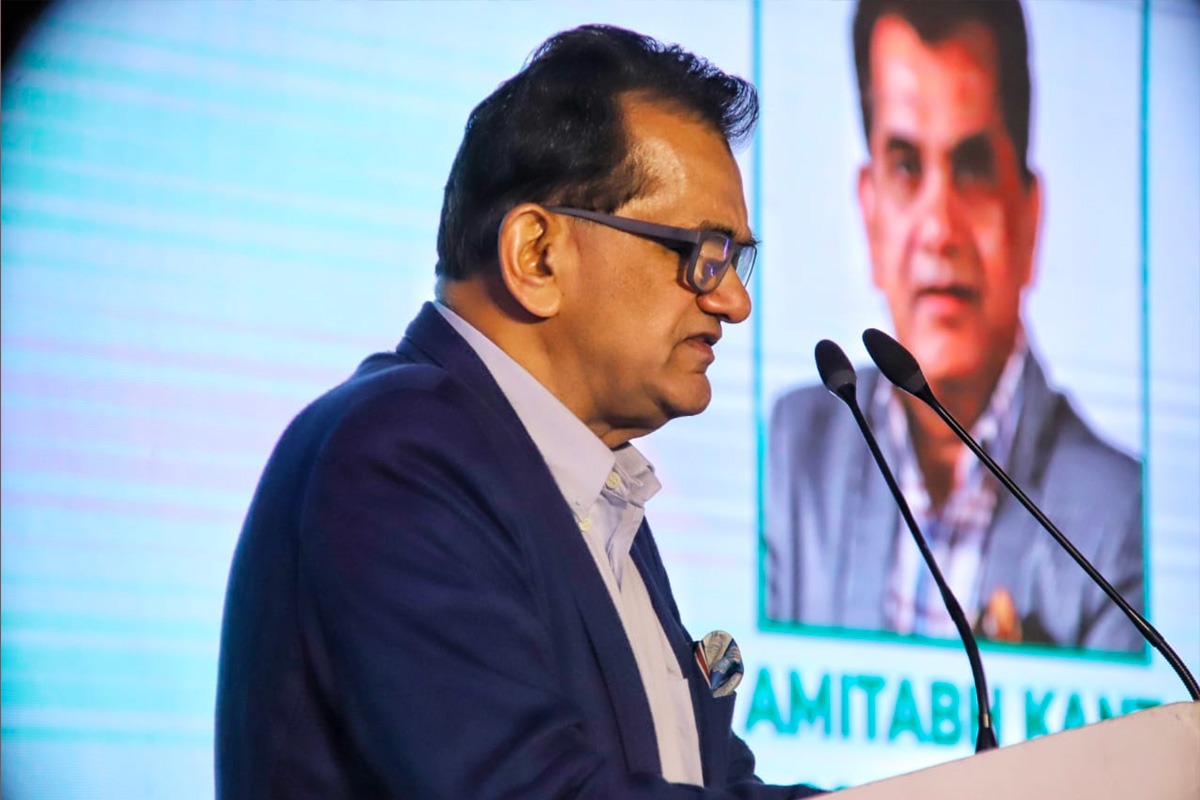NEW DELHI: India’s Sherpa for G20 Summit, Amitabh Kant on Monday said collaboration among the bloc members was crucial in harnessing the potential of technology to revolutionise the agriculture sector.
Speaking at the G20 AgriTech Summit in New Delhi, Kant said the agriculture sector could be made sustainable by introducing conductive policies, innovation, and digital technology and by setting up lucrative business models and affordable infrastructure.
“A vast section of our population is dependent on agriculture and it is critical for us to become the number one producer of agriculture products. So it is crucial for us to be the top agricultural producer in the world,” he said.
ALSO READ: Putin opts out of next month’s G20 Summit in India
The summit showcased India’s commitment to driving innovation, collaboration and sustainability in the realm of agriculture. It brought together thought leaders, experts and stakeholders from across the globe to explore transformative solutions for the future of farming.
Highlighting India’s leadership role within the G20, Kant emphasized that the nation’s primary focus is rooted in addressing the pressing issues of global hunger and malnutrition. Anchored by the Sustainable Development Goal 2, which seeks to achieve ‘zero hunger’, India aims to leverage technological advancements to create a more equitable and sustainable food system.
“Tech advancements in agriculture are truly the key,” Kant stated, elucidating how the amalgamation of cutting-edge technologies with traditional farming practices can lead to transformative outcomes.
ALSO READ: Avoid travel to these areas of Delhi during G20 Summit
Digital innovation stands as a linchpin that enables the mainstreaming of innovative practices, thereby ensuring the empowerment of farmers and the enhancement of overall agricultural productivity, he added.
“One of the cornerstones of this transformation is the provision of real-time data to farmers. With instant access to information, farmers can make informed decisions about crop management, resource allocation, and market trends. Moreover, the creation of crop production forecast models enhances preparedness, helping farmers mitigate risks and optimize yields in an ever-changing environment.”
He said that the integration of artificial intelligence (AI) emerges as a game-changer in the battle against crop diseases. AI-driven projections enable timely predictions of disease outbreaks, enabling proactive measures to curb their spread. This not only safeguards crops but also enhances the sustainability of agricultural practices.









